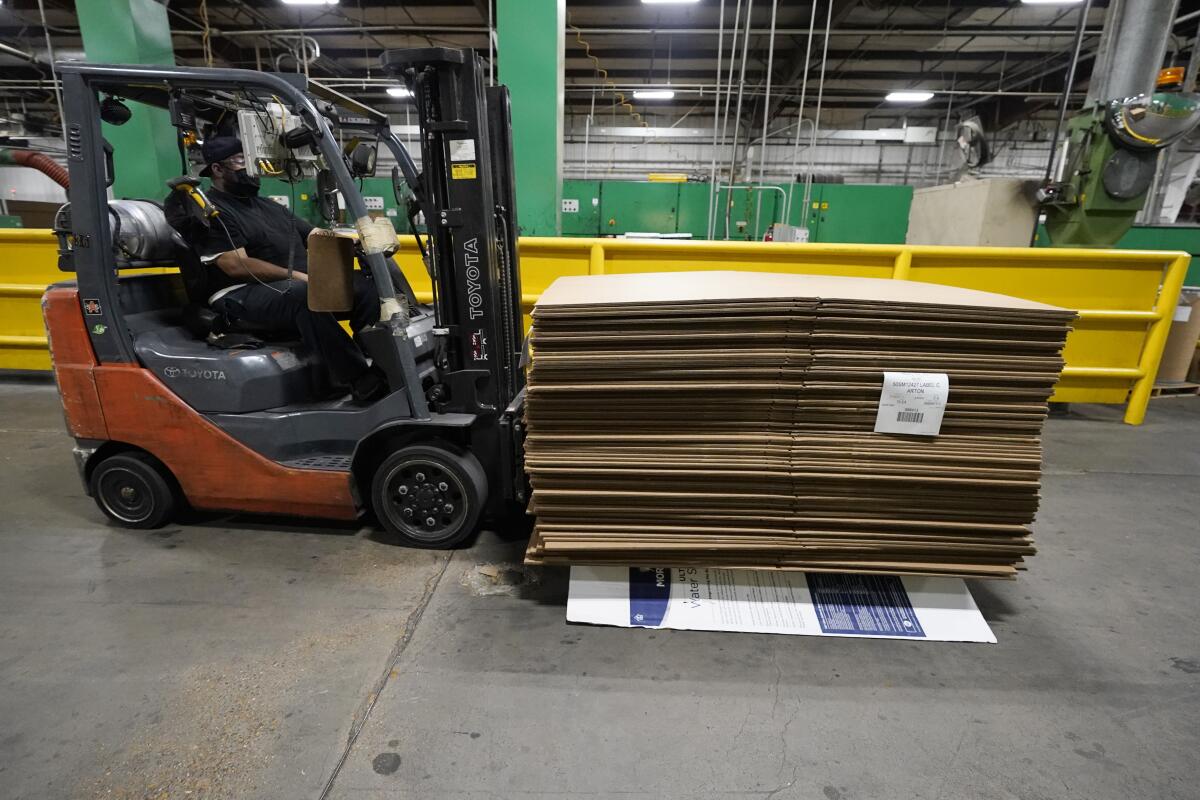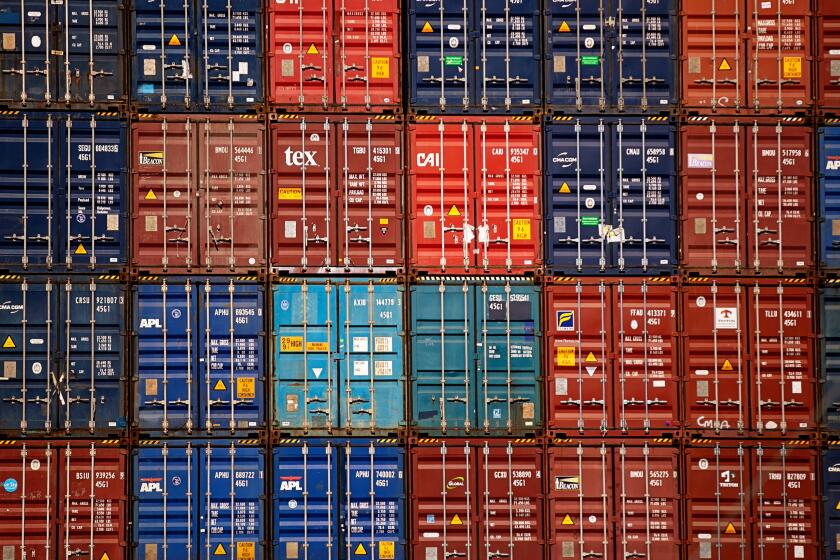The world is using fewer cardboard boxes. That’s a bad sign for the economy

- Share via
Mills that churn out cardboard are slashing production worldwide, a worrying sign that global trade is slowing down.
North American companies that make the raw material for corrugated boxes shut down nearly 1 million tons of capacity in the third quarter and a similar scenario is expected for the fourth quarter, Bloomberg Intelligence analyst Ryan Fox said. Prices are falling for the first time since 2020.
“Severe weakness in global box demand is an indication of how weak many parts of the global economy are,” said KeyBanc analyst Adam Josephson. “The recent history shows a significant amount of economic stimulus would be necessary to provide meaningful box demand, and we do not see that coming.”
Investors are watching closely for any harbingers of what is to come as fears mount that many of the world’s biggest economies will tip into recession next year. Paper boxes are present at nearly every step of a good’s journey through the supply chain, which makes paper a key indicator of how economies are faring. The signals are not encouraging.
Global demand for packaging paper is showing weakness for the first time since 2020, when economies reignited following the first hit of the COVID-19 pandemic. U.S. prices fell in November for the first time in two years and the U.S., the world’s biggest exporter, reported 21% lower volumes sent overseas in October versus the previous year.
Inflation has slowed sharply, so why is the Federal Reserve still intent on killing jobs and economic growth?
WestRock and Packaging Corp. have announced mill closures or idled machines. Klabin, Brazil’s biggest packaging-paper exporter, is considering cutting its exports by as many as 200,000 metric tons next year, Chief Executive Officer Cristiano Teixeira said. That’s almost half the amount exported in the12 months ended September.
Much of the fall off in demand is attributed to the shrinking effect inflation has on consumer wallets. Companies that produce products as diverse as consumer staples and apparel are bracing for a pullback. Procter & Gamble Co. has raised prices for such products as Pampers diapers and Tide laundry detergent several times to offset higher expenses, fueling the company’s first quarterly decline in unit sales since 2016 earlier this year.
U.S. retailers discounted heavily on Black Friday in hopes of clearing out excess inventory, but shoppers responded with only modest traffic and sales fell in November by the most in almost a year. Moreover, the meteoric growth of e-commerce — an avid user of cardboard boxes — has receded.
Sluggish demand is also hitting pulp, the raw material for paper. Top global exporter Suzano recently announced a price cut for its eucalyptus pulp in China, the first decline since late 2021. European demand is decreasing and a long-awaited recovery in China hasn’t materialized yet, said Gabriel Fernandez Azzato, a director at consultancy firm TTOBMA.
Bloomberg writers Daniela Sirtori-Cortina and Olivia Rockeman contributed to this report.
Economically speaking, the vibes are off. Here’s what you should be doing with your money, according to financial experts.
More to Read
Inside the business of entertainment
The Wide Shot brings you news, analysis and insights on everything from streaming wars to production — and what it all means for the future.
You may occasionally receive promotional content from the Los Angeles Times.












